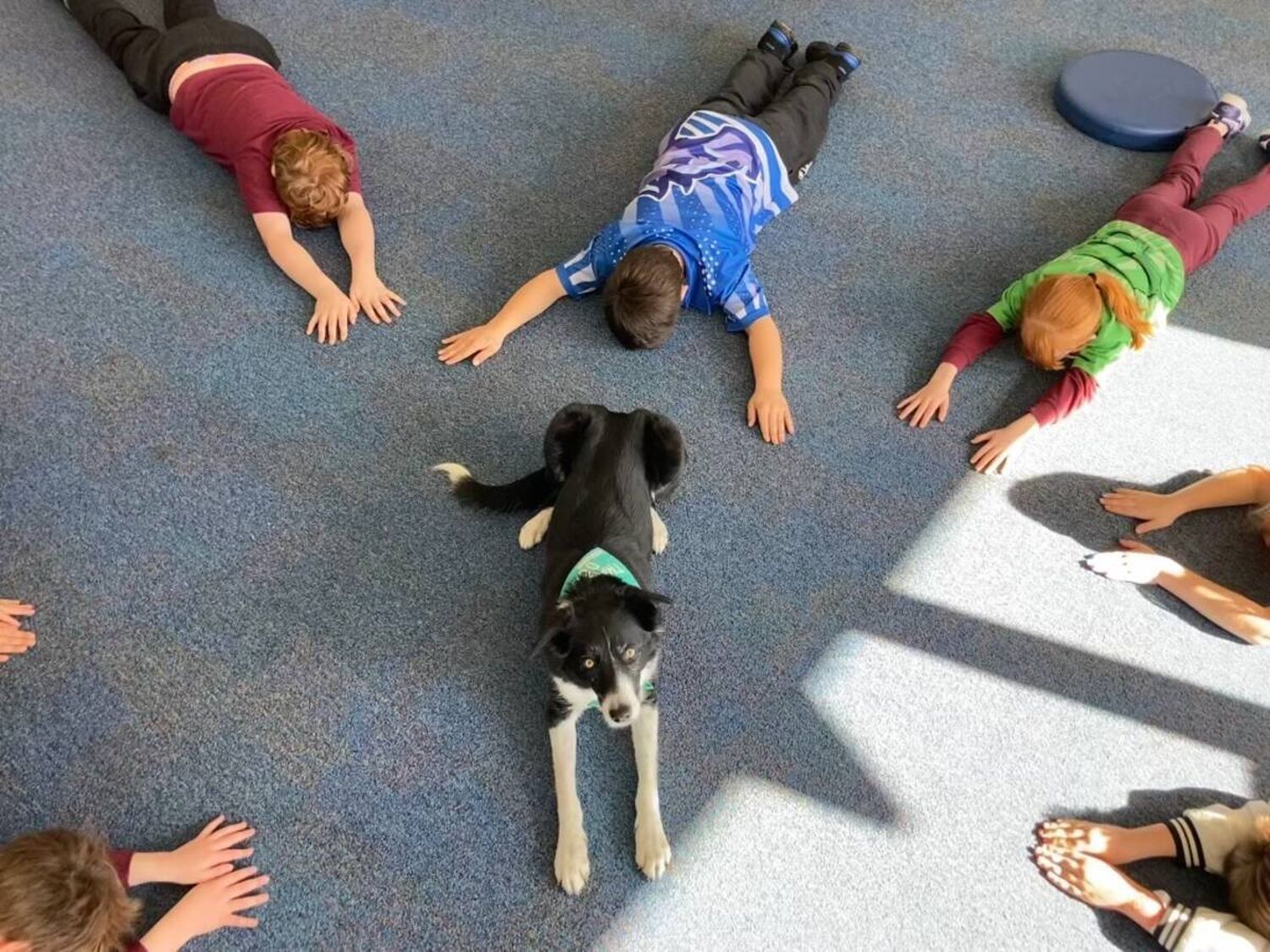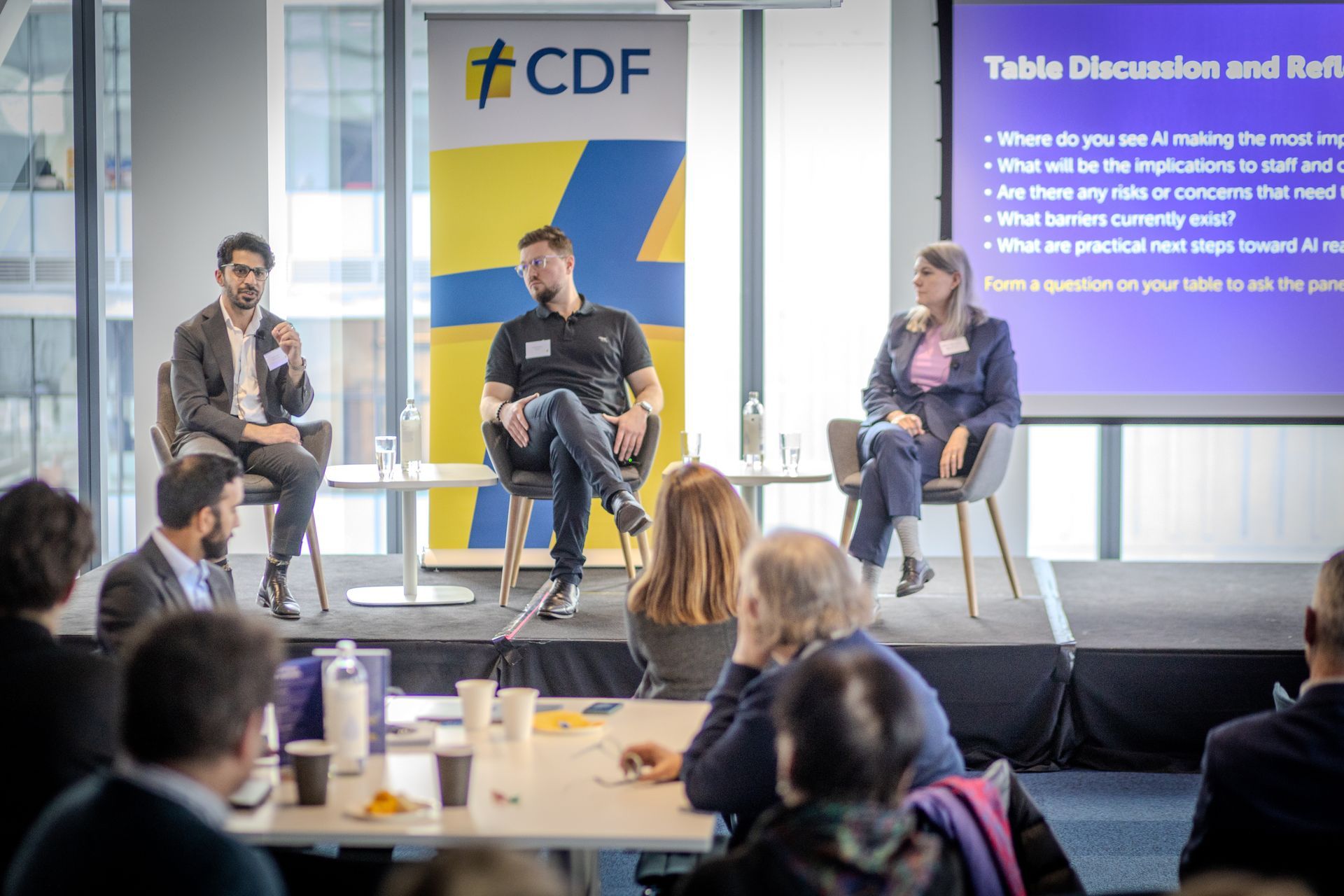The world changes rapidly. What were once considered traditional norms are now viewed as outdated, redundant practices by people in a more modernised society.
Our faith, along with its traditions, has been around for two millennia, so how can a system of faith as old as Catholicism continue to thrive?
The Church today has grown into what it is because of the people. With it following the “sign of the times”, our religion acknowledges that it has to adapt to remain relevant to each individual of whom it is composed. While traditions remain in place and are still followed by many, modern Catholics have found new ways to express their faith.
While our faith in God encourages expression through the rituals and traditions we were taught to follow throughout the centuries. The Church today also invites each of us to be disciples in the best way we can and extend our faith in areas where it’s needed most.
These ways are not necessarily identical to what our ancestors did, and for Father Anthony (Tony) Doran, a parish priest in Ringwood in Melbourne, these changes should be embraced if they ultimately serve the mission of the Church.
A teacher turned priest
Fr. Tony was raised in a Catholic home with his parents active parish members throughout his childhood.
Despite his Catholic upbringing, priesthood wasn’t a path he planned to follow. Fr. Tony started out as a teacher in Catholic schools in regional Victoria. And although he saw teaching others as a great privilege, he later on realised that there was something more that he wanted to do.
He decided to pursue a theology degree before joining the seminary, and is now the parish priest of Our Lady of Perpetual Help. His parish in Ringwood represents a diversity of people, from those well-ensconced in the community for more than 50 years to newer Australians from Burma, Tonga, India, Sri Lanka, Vietnam and the Philippines.
“It was studying theology that led me to a point where I thought, ‘If I don’t try this, there’s always going to be an unanswered question in me’,” says Fr. Tony.
“So I started the process of undertaking spiritual direction and went to the seminary, and the rest, as they say, is history.”
In following his calling to become a priest, he was able to better dedicate his life to helping others through the work of God. Since his ordination 17 years ago, he has served in parishes in Moonee Ponds, Bayswater, Epping, East Keilor, Castlemaine, Box Hill and Box Hill North.
According to Fr. Tony, being a priest has its own set of challenges, but there are a lot of beautiful things about being one, especially being invited to be part of other people’s lives in sacred moments like baptisms and weddings, and ministering the sick and the dying. “It’s a really vulnerable place that people invite you to be in, to be a part of their life,” he says.
Life as a priest
Like most people, Fr. Tony’s day starts with breakfast to energise him for the day’s work.
After that, he makes time for prayer every morning. “Priests don’t only pray for ourselves. I pray for the Church, for the people who have been entrusted to my care, and for the people who have no one to pray for them.”
He then says his morning mass, albeit a little differently now with the restrictions and precautions associated with the pandemic. He streams his daily mass online.
No two days look the same as he completes his other work after mass as a priest, as immediate past president of the Australian Academy of Liturgy, and as a member of Societas Liturgica, the international society for liturgical study and renewal. His work centres around not only the ‘church’ walls but also the attached primary school, the local community and its parish members – ultimately creating an environment that’s safe and provides a better place to live in for the community.
“A priest’s role has definitely evolved over the years. It’s not just mass and sacraments, we are truly involved in every part of the community here, we have to ensure that our parishioners are looked after and have a place to thrive spiritually. Many members of our community are here today for more than just mass, they want to be involved, connected with others and actively partaking in various ministries. It’s great and something we as priests must encourage and help nurture,” Fr. Tony says.
In his free time, he also loves gardening.
“Getting your hands dirty and getting in touch with the soil, I believe, keeps your feet very much on the ground,” he says.
Remaining connected to education
Fr. Tony may no longer be a Catholic school teacher, but his support for the educational mission of the Church has never wavered.
So as a priest and in his role as the president of the Association of Canonical Administrators of Aquinas College, he continues to help schools in other ways so that the students can strengthen their faith and become closer to God.
Apart from his meetings with the local primary school team and principal, Fr. Tony makes it a point to catch up with the school staff every week about their classes and experiences, and he also arranges classroom visits, particularly to the children who are preparing to celebrate their sacraments.
For him, it’s important that the children know who he is and understand his role in their connection with Christ. Being part of these classroom discussions also helps facilitate the sacramental preparation each of the students is undertaking with their peers. This link with the school community is also vital for school families and parishioners in continuing their journey of faith outside the school grounds.
Responding to the changing dynamic of a modern parish community
Today, while many Catholic still enjoy the tradition of weekend Mass together with family and friends, listening to the gospel and connecting with communities, a shift in parishioner priorities along with a global pandemic has definitely played its part and made the challenge greater in maintaining the all important connection to our parishes.
In situations like this, Catholicism knows to embrace change.
While physical traditions are temporarily on hold, and can’t be followed in the way they were before, Fr. Tony doesn’t let it stop him from continuing to spread the Good News to local parishioners – both new and old. With nearly everyone having their smartphones and laptops connected to the internet, Fr. Tony now live streams mass across media platforms like Facebook and YouTube.
This has benefited not only those who hear mass in-person at the regular church services over the weekend, but also a whole new audience, beyond his parish postcode. In fact, he has a steady stream of viewers online.
He also conducts his other tasks online such as parish meetings and prayer groups (via Zoom), and materials such as lectures available online about how to become a more mission-oriented parish, rather than a maintenance-oriented parish.
There are also more parishioners signing up to the parish’s eNewsletters and weekly updates, and thanks to the power of the internet, their parish has welcomed more people from all parts of the world.
While of course, physical services will remain in place after COVID, these changes that embrace technological advances offer alternate solutions to those who cannot physically be present within the church walls.
Livestreams allow people to hear mass at any time of the day and have assisted the frail and elderly from having to go out on a cold, wet Sunday morning. Zoom calls are also more convenient in many ways – Fr. Tony now regularly has these meetings with his parishioners who are as old as 80, who are much safer attending meetings from the comforts of their homes sometimes.
Others say it’s about being gadgety or gimmicky, I said, ‘No, it’s about working smarter, not harder’,” Fr. Tony says, in approval of witnessing how the Church has evolved with new technology.
“We’re working hard enough, but if the tools and the technology can help us work smarter, that’s actually a good thing.”
It’s something Fr. Tony and many of the parishioners look to continue or weave into their post-COVID activities to help parishioners stay connected online. “With advancements in technology and new expectations from parishioners, it will be a challenge and consideration many parishes, like ours, will no doubt have to make,” says Fr. Tony.
CDF; always there to help Parishes
Fr. Tony had always known about CDF, way before he became one of its board members three years ago. Before he became a priest, he would see the CDF logo on the infamous desk memo cube – subtle reminders of the organisation that first began as ‘Schools Provident Fund’ back in the 1950’s.
“Part of the landscape of being a Catholic priest in Melbourne is that CDF is part of your life,” he says. “CDF truly understands parish communities, to a much greater and personal extent than other big financial institutions, they’ve been around for so long and without them the communities that exist in so many of our faith communities today, would not be what they are.”
But as a priest with little background in accounting and finance, working for CDF wasn’t something Fr. Tony had ever envisaged – until he got a phone call a few years ago inviting him to take on a Board position.
“I know the accounting basics, but to be able to serve CDF and the mission of the church in that way – I didn’t think initially that it was a natural fit,” he admitted.
But after a lot of discernment about what the role entailed, he decided that joining CDF was one of the ways where he could be of better service to God and His people.
While Fr. Tony didn’t know much about financial institutions and how they run, he knew all about the church and its mission. And as a former school teacher, he also understands the educational mission of the church, which CDF ultimately supports.
When he joined CDF as a Board member, he told one of the members of the management team that he was struggling with the complexities that the organisation dealt with as a financial institution.
“He told me, ‘Fr. Tony, you’re not here to ask the financial questions; other people ask those questions. You are here to ask us a whole lot of other important questions to keep us on track and mission aligned’,” Fr. Tony says, quoting the manager he spoke with.
Since then, he has been doing his part in making sure that CDF keeps to the Church’s mission and remains faithful to it.
According to Fr. Tony, CDF has helped almost every parish in many ways.
“If you were to look at some parish finances on paper, especially the new parish communities, they don’t have a lot of money behind them. CDF understands them and is able to give loans to parishes and schools that are not only building buildings but also communities of their own. Some of the things that my own parish was able to do only happened because of CDF’s help.”
Our requirements, of course, aren’t any less stringent, but CDF is not just a simple black and white financial institution. As he describes, “CDF is a financial institution, but at the service of the mission of the Church. I know for a fact that CDF hasn’t had a bad debt in it’s 60 year history.”
According to Fr. Tony, CDF doesn’t only benefit his parish at Ringwood. It’s benefiting many others, like parishes with schools that are starting up in our growth areas in the outer suburbs with plenty of children who want to be educated and people who want to worship.
“The balance sheet of a new parish is zero. CDF helps all of this growth come to life and happen.”
Priests like Fr. Tony do a wonderful job in serving the communities under their care. With the help of CDF, parishes like Our Lady of Perpetual Help have developed into how they are today, which allows them to more readily adjust to the continuous and rapid changes brought about by modernisation.
Especially in difficult times like the “new normal” experienced across the world today, Catholic leaders continue to find ways to help their communities and spread the Good News with the means available to them.
“Being a priest is always relevant because there are always people to whom we preach the Good News of Jesus. Whether it’s to people sitting in the pews every day or the people who’ve never heard of the good news – we always have that mission of proclaiming the Good News.” – Fr. Tony Doran.
Pictured right: Fr Tony Doran
Share this article:
Related articles

CDPF Limited, a company established by the Australian Catholic Bishops Conference, has indemnified the Catholic Development Fund ABN 15 274 943 760 (the Fund) against any liability arising out of a claim by investors in the Fund. In practice, this means your investment is backed by the assets of the Catholic Archdiocese of Melbourne. The Fund is required by law to make the following disclosure. Investment in the Fund is only intended to attract investors whose primary purpose for making their investment is to support the charitable purposes of the Fund. Investors’ funds will be used to generate a return to the Fund that will be applied to further the charitable works of the Archdiocese of Melbourne and the Dioceses of Sale and Bunbury. The Fund is not prudentially supervised by the Australian Prudential Regulation Authority nor has it been examined or approved by the Australian Securities and Investments Commission (ASIC). An investor in the Fund will not receive the benefit of the financial claims scheme or the depositor protection provisions in the Banking Act 1959 (Cth). The investments that the Fund offers are not subject to the usual protections for investors under the Corporations Act (Cth) or regulation by ASIC. Investors may be unable to get some or all of their money back when the investor expects or at all and investments in the Fund are not comparable to investments with banks, finance companies or fund managers. The Fund’s identification statement may be viewed here or by contacting the Fund. The Fund does not hold an Australian Financial Services Licence.




